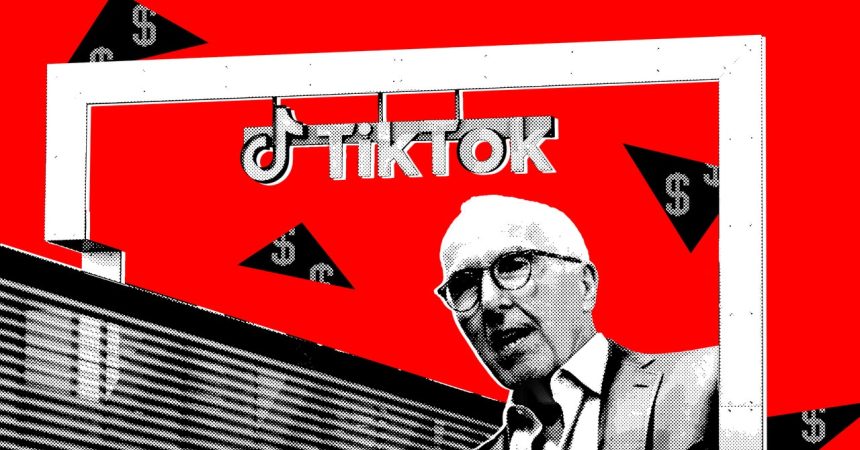The future of TikTok in the United States hangs precariously in the balance, following a recent federal appeals court decision upholding a law that could lead to the app’s ban as early as next month. While a 90-day extension by President Biden remains a possibility, the clock is undeniably ticking for TikTok to navigate this complex legal and political landscape. Essentially, three primary options remain: a successful appeal that allows TikTok to continue operations as usual, a complete ban within the coming year, or the sale of TikTok’s US operations to a third party.
Billionaire Frank McCourt, former owner of the Los Angeles Dodgers, has emerged as a prominent contender for the acquisition of TikTok’s US assets, positioning his bid not just as a rescue mission for the popular app, but as a crucial step in advancing his vision for a more open and decentralized internet. McCourt’s “people’s bid,” driven by his Project Liberty initiative, aims to leverage a consortium of investors and organizations aligned with his goal of disrupting the dominance of tech giants like Meta and Google. Central to his plan is the integration of the Decentralized Social Networking Protocol (DSNP) into TikTok, a technology designed to empower users with greater control over their data and facilitate seamless migration to alternative platforms. The recent court ruling has seemingly bolstered McCourt’s confidence in his bid’s prospects, fueling his belief that his team is poised to take the reins of TikTok and potentially reshape its future.
McCourt’s proposal revolves around a $20 billion offer for TikTok’s brand, user base, and existing content, specifically excluding the algorithm that powers the app’s highly engaging For You page. He argues that this acquisition strategy satisfies the interests of all stakeholders, including ByteDance, TikTok users, and the US government. By divesting its US operations, ByteDance would alleviate national security concerns, while users would retain access to the platform and their existing content. Furthermore, McCourt believes that the implementation of DSNP would ultimately enhance user privacy and promote a more competitive internet landscape.
The crux of McCourt’s vision lies in the potential of DSNP to revolutionize social networking by prioritizing user autonomy and data portability. This protocol would enable users to seamlessly transfer their connections and content to other platforms built on the DSNP framework, fostering interoperability and reducing reliance on centralized platforms. This decentralized approach, in McCourt’s view, offers a more democratic and user-centric alternative to the current social media ecosystem dominated by a handful of powerful corporations. He contends that this shift toward decentralization would empower users with greater control over their online experiences and safeguard their data from potential misuse.
Addressing concerns about replicating TikTok’s success without its influential algorithm, McCourt expresses confidence in the ability of DSNP to cultivate a thriving user experience through its emphasis on community building and user-controlled content distribution. While acknowledging the algorithm’s role in TikTok’s popularity, McCourt suggests that a decentralized approach can offer users an alternative form of engagement based on authentic connections and personalized content curation. He posits that users may not fully grasp the potential of a decentralized platform until they experience its benefits firsthand.
McCourt’s bid for TikTok represents a pivotal moment in the ongoing debate over the future of social media and the balance between national security concerns, user privacy, and the power of Big Tech. The potential acquisition carries significant implications for the evolving landscape of online interaction, potentially ushering in an era of greater user control and decentralized platforms. The outcome of this situation will undoubtedly shape the future of social media and determine whether TikTok continues to thrive under new ownership or faces an uncertain future in the United States. The next few months will be crucial in determining the ultimate fate of TikTok and the direction of social media as a whole.



